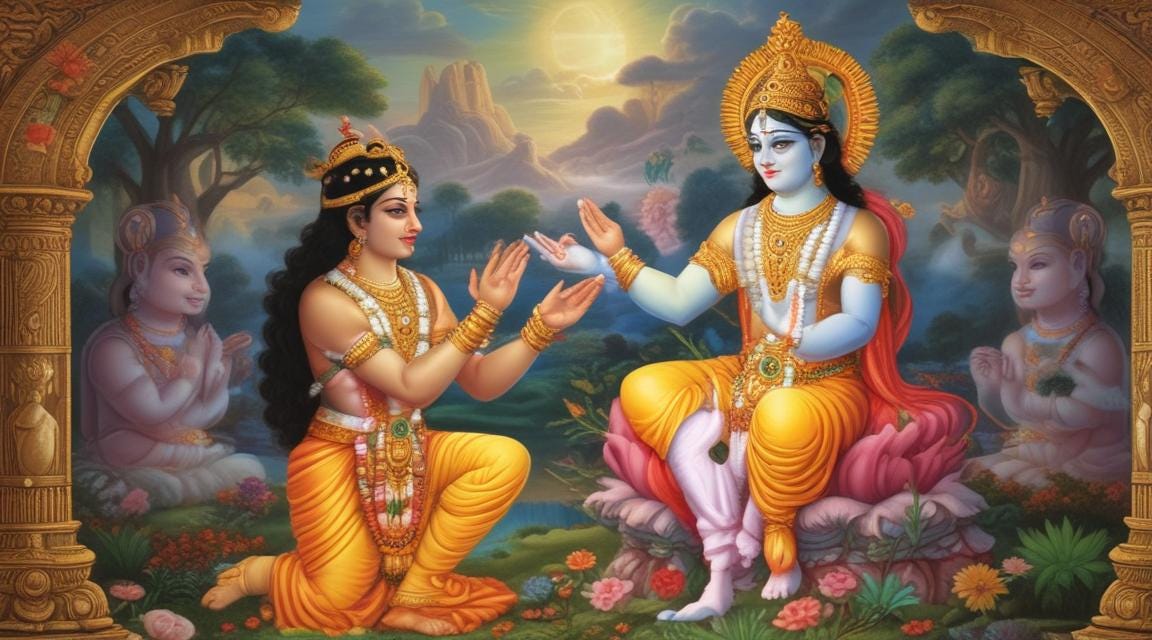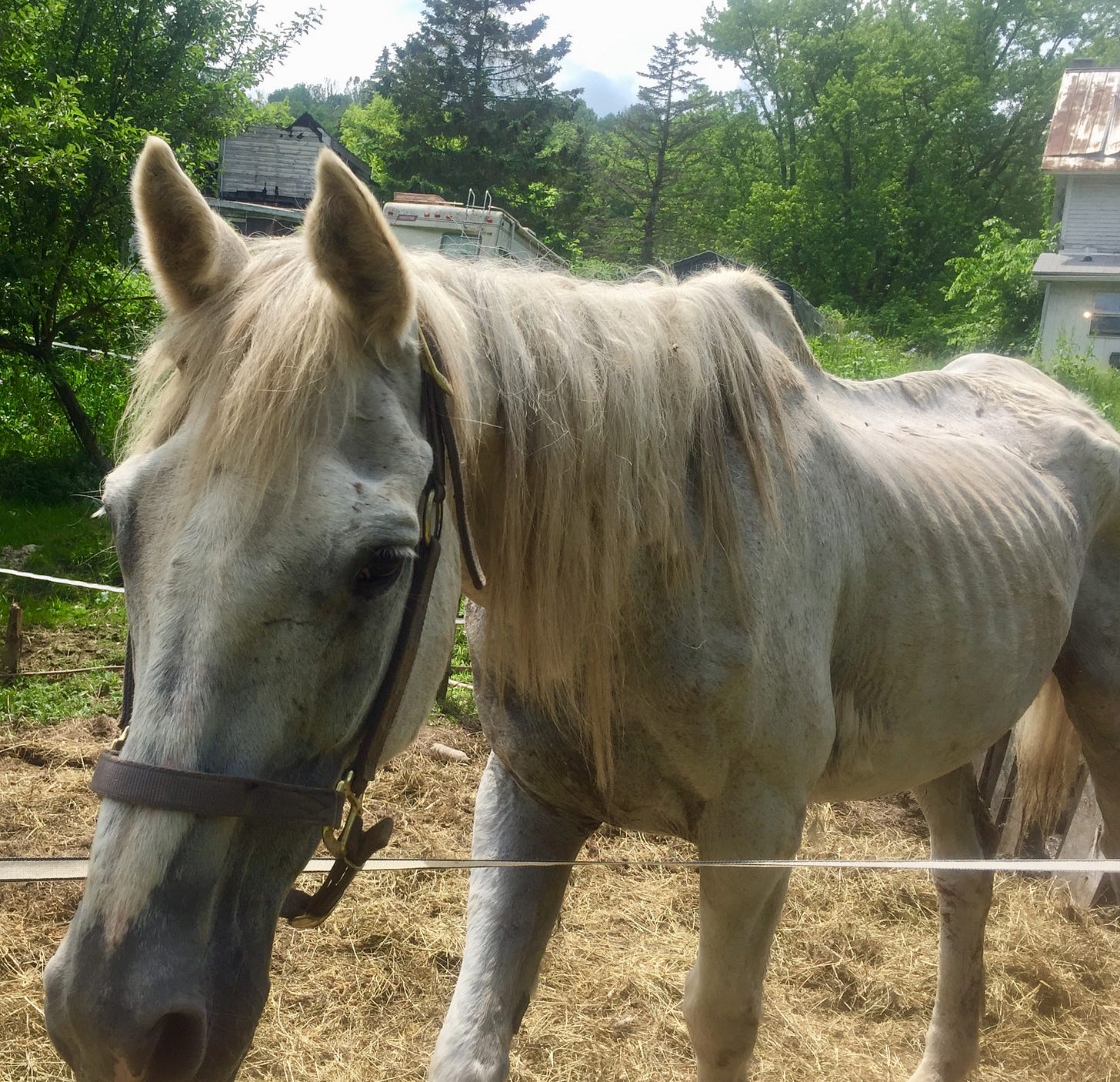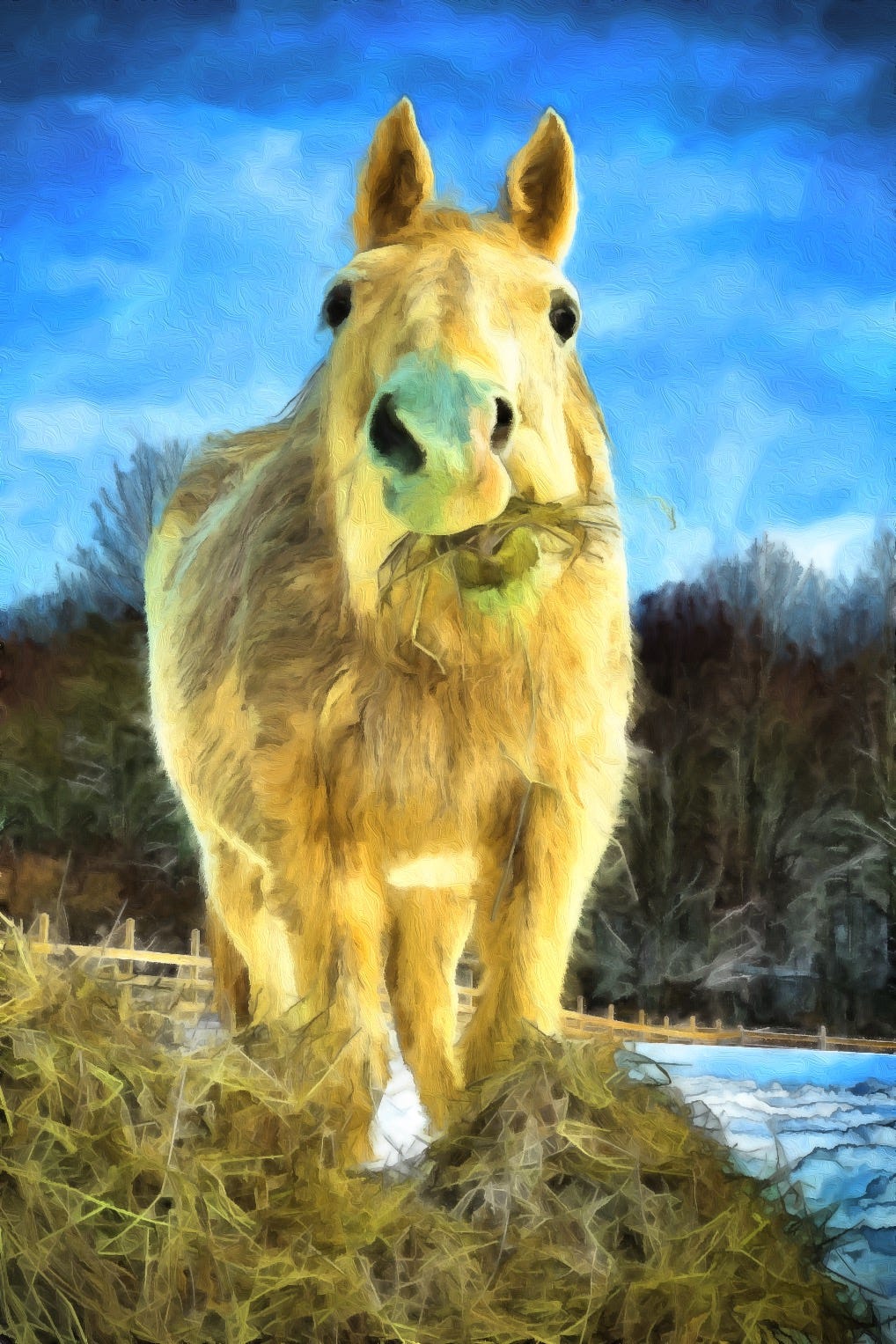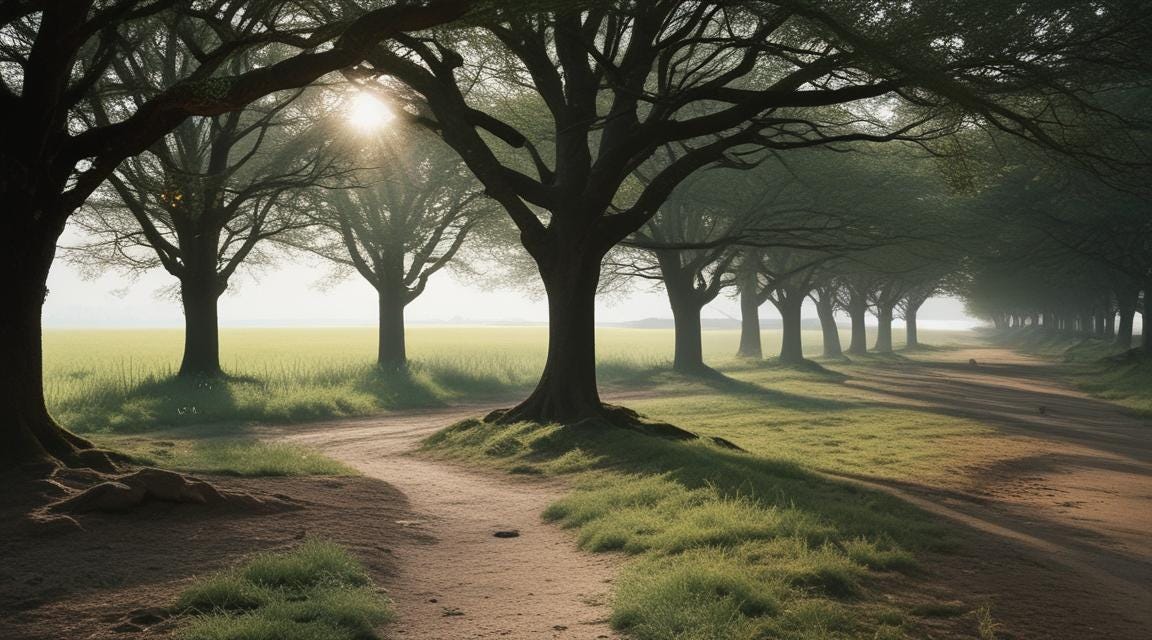“It is better to live your own destiny imperfectly than to live an imitation of somebody else's life with perfection.”
Bhagavad Gita, Chapter 3, Verse 35
The Struggle to Act
Lately, I have been trying to support four different friends that are struggling with depression. They do not know each other and their situations are completely unrelated. In fact, they live in four different states. One is a yoga teacher, another is a psychiatrist, a third is a retired attorney and the fourth is a graduate student. All of them are intelligent and mature and have been through depression before and come out on the other side. My challenge is that they each know exactly what they need to do to feel better, but they just and simply won’t do any of it.
I get it. I have been there. My kryptonite was always love– or the illusion thereof. Every relationship that I have ever been in with a man has been wildly unhealthy. And in every one of these relationships, I knew that my health and well-being were being damaged years before I finally ended things. In one case, I spent years with a man whose anger was so frightening that I jumped out of a moving vehicle– more than once– just to escape his rage. And it still took me years to end it! So, yes, I get it. I, too, have been where my friends are—frozen in inaction, knowing what needs to be done, but unable to take that first step.
I said to one of them the other day, “You are barreling down the highway, and you know where you are headed. You know that you are about to crash and when you do, you could lose more years of your life trying to climb out of the wreckage, if you’re lucky enough to survive it again. You have already been down this road and you don’t want to go there again. I know you don’t!”
“You are right.”
“So veer off, friend! Turn! You know what you have to do, please, please just take a different road this time!”
“Yeah, I know I should.”
“Why don’t you?”
“I don’t know. Because it’s not that easy.”
“Being depressed isn’t easy either.”
“No, but it’s less effort.”
It’s tempting to think that just because I found my way through my trauma in the way that I did, others should follow the same path. But the truth is, each of us must carve out our own road, no matter how uncertain or difficult it seems. What worked for me, or anyone else, may not work for my friend, and what works for him may not work for you. That’s the nature of dharma—there is no one-size-fits-all solution.
Dharma: It’s Personal
The quote at the opening of this article is from the Bhagavad Gita. The god Krishna is speaking to Prince Arjuna on the battlefield. Arjuna is resisting the prospect of fighting in a great war that will involve killing friends, family, and revered teachers. He wants to abandon his duty as a warrior, and his reasons for doing so— fearing the spiritual consequences of violence and destruction— are profoundly legitimate.
Krishna, serving as Arjuna’s charioteer, delivers a sagacious discourse on life, duty, and the path to spiritual liberation. In this particular verse, Krishna is teaching Arjuna about the importance of following one’s dharma (duty or purpose), even when it is difficult. For Arjuna, as a warrior, his dharma is to fight in the battle. Krishna explains that it is better to follow one’s own path, even if imperfectly, than to follow the path of another, even with great skill.
Like Arjuna and my depressed friends who can’t seem to take action towards healing, we each have battles to fight in this life. Challenges that it is our destiny to overcome. These life challenges test our strength, resolve, and sense of self. For my friends struggling with depression, these challenges require them to fight their own emotional demons. Yet whether physical, emotional, or spiritual, the life challenges that we encounter on our paths are not obstacles to be avoided but opportunities to be embraced. The path to growth and transformation lies not in escaping these struggles, but in moving through them. How we respond to the difficulties we face, and the person we become on the other side, is the essence of our life's work. What if the very trials we resist are the ones that lead us to our truest selves?
And what if the things we dig in and avoid most stubbornly, most desperately, most fearfully– what if these are the very things that unlock the key to our own greatest freedom and purest bliss?
Brother Wind: A Story of Struggle and Liberation
A few years ago, I was out to lunch with a colleague. It was a gorgeous June day and we had a table outside under the blue sky. Then my phone began to ring. It rang and rang and rang and rang. Dozens of people calling at once to report an emaciated horse stumbling down the highway. Abruptly, we paid the bill and raced to where callers stated that they saw the horse.
I found the horse at the same time as his human did. Cigarette dangling from her mouth, she told me that his name was Butch and that he was a prize stallion that her partner had purchased at auction.
There he stood, a shadow of what a horse should be, head hanging so low it nearly touched the ground, legs trembling like they could give out at any second. His spine, ribs, and hip bones jutted out under skin so thin it was as if his body had all but given up holding itself together. His coat, once white, was now a filthy gray, tangled with dirt and blood from the deep scrapes and cuts that covered every inch of him. Each breath seemed like a struggle, a fight to hang on just a little longer in a world that had already forgotten him. I had to think fast.
“It’s a lot to take on, a big horse like this,” I started, “A lot of work and a lot of money.”
“Yeah, well, we intend to make a lot of money off him,” She tugged at his halter like she expected him to gallop off with the wind, but the poor guy just stood there, head drooping.
I walked around to his back end. “Ma’am, I think we’ve got a problem back here. Take a look.”
Her cigarette wobbled dangerously in her mouth. “You can’t tell me what to do.”
“Well, I’m not trying to, but your horse… he's missing some important equipment for those 'big plans' you mentioned.”
“What are you talking about?” she asked, hands on her hips like I was about to sell her a timeshare.
“Ma’am, he’s gelded.”
She frowned, clearly not understanding. “What do you mean?”
“Castrated?” Still blank. Thinking to myself, she is going to make me spell this out, I sighed. I gestured toward his hindquarters, lowering my voice like I was sharing some sensitive, confidential information. “He, uh, doesn’t have testicles.” Her expression didn’t change. “As in, no family jewels.”
She blinked at me. “You mean…”
“Yup, they’re long gone.”
The cigarette bobbed in her mouth as her eyes widened. “Are you serious?”
“Very.” I nodded solemnly. “Take a look if you don’t believe me.”
She took a step closer, then froze. “Well, sh*t. My boyfriend’s gonna be pissed.”
Thanks to his inability to reproduce, I was able to save him. I named him Brother Wind and raced him to the hospital. Wind gained over 800 pounds over the course of the next year. The scratches, scrapes, and cuts that once covered his body all healed. His coat grew back a thick and glossy silver-white. And his bottomless brown eyes held a whole lifetime of the deep understanding and love that only suffering calls forth.
I do not know why Brother Wind had to be nearly starved to death and beaten within an inch of his life before he finally found the strength to escape the flimsy fencing that held him in the hell these people made for him. However, I believe in rta. Rta is the cosmic order. The way things are supposed to be.
I once asked a swami about this. “Swamiji, if rta exists, how is it that we have free will?”
“Ah!” he giggled, “Yes, it is true. Everything is exactly as it should be. But it could be better.”
Swamiji’s giggle reminded me that even though everything is ‘as it should be,’ we still have the freedom to act. My friends know what they must do, just as I know I cannot walk their path for them. It is their free will that will ultimately bring them closer to self realization—but only if they choose to walk through their pain.
Just as I found my way to transcend my trauma, Wind found his way through his suffering. We all have battles that we must face head-on.
Everything is exactly as it should be. But it could be better. And it’s up to us to make it better. When we do, we essentially create a new cosmic order, even as cosmic order is changeless. But how rta came to be to begin with– and why Wind was meant to suffer at the hands of those people– these are just more aspects of the Great Mystery. What we do know, though, is that when we take action without attachment to the results (sometimes we call this karma yoga), and act with Sraddha (having faith while also taking action), we often find wisdom and even bliss on the other side.
Can you imagine how frightening it must have been for a shaky, weak, nearly starved horse to stumble past a field of grass and turn down a busy highway? Yet, he knew that his best chance would be where the most people could see him. And just as Wind had to battle the fence and walk into the unknown of a nearby highway in order to find help and a life of love and freedom in sanctuary, we each must face down our deepest fears and strongest demons to find our own true bliss.
And with the kind of bliss that comes from liberation also comes great wisdom. Wind spent the rest of his days teaching quiet discourses on vedanta while grazing with two especially recalcitrant mares.
Just as Wind had to leave behind the known horrors of his confinement and take the terrifying step onto a highway, we too have to face our own unknowns—our deepest fears and strongest demons—to reach a place of peace. It's in that movement forward, through the pain, that true freedom and bliss await.
As Krishna reminded Arjuna that his battle was unique, so too are my friends faced with their own struggles that no one else can fight for them. Each of them, like all of us, has a personal journey to navigate, with no shortcuts or borrowed solutions from others. They must step onto their own path, even if imperfectly.
Listening to the Whisper of Truth
In the Bhagavad Gita, Krishna serves as Arjuna’s charioteer, guiding him not only through the chaos of battle but through the inner turmoil of doubt and confusion. This role, however, transcends mere physical guidance—Krishna represents the voice of wisdom, the embodiment of satya (truth) that exists within each of us. Just as Krishna provides Arjuna with the clarity and strength to act, so too does this inner Krishna, this divine spark of truth, whisper the answers to life’s mysteries deep within our own hearts and minds. I’ve come to realize that, like Arjuna, I carry within me a Krishna of my own—an inner guide whose wisdom I’ve often ignored, only to find that listening to it always leads me toward the light.
Often, this wisdom emerges in moments of stillness, when the noise of the world quiets and we can hear that subtle, intuitive voice—the one that speaks to us in dreams or in moments of deep contemplation. It is the same wisdom that knows what action we must take, even when fear clouds our vision. It tells us when to move forward and when to hold back, when to fight and when to surrender. The challenge, however, is not in accessing this wisdom—it is always there—but in learning to listen.
Krishna’s presence as Arjuna’s charioteer is a metaphor for this inner guide, one that is not external or separate from us, but deeply rooted in our own soul. Each of us carries this inner Krishna-wisdom, and it is unique to our own journey. No one else can access it or define it for us, because it is perfectly suited to our life, our challenges, and our purpose. If we cultivate the ability to trust this voice and align ourselves with its truth, it will reveal to us the strength to act, the will to endure, and the knowledge of how to move forward—even in the face of our greatest fears.
This inner guidance does not come through force or loud commands; rather, it arrives like a whisper in the night, a gentle but persistent reminder of our own capacity to meet the challenges before us. It shows us that we are not helpless in the face of our struggles, but capable of navigating them with wisdom and grace. By turning inward and listening to this Krishna within, we find the courage not only to face life’s battles but to transform them into opportunities for growth and liberation.
For, in the end, the greatest act of courage may not be in the battles we fight, but in choosing to live our own life, as flawed and uncertain as that may seem.







What a beautiful article, Indra. I know when I'm not doing the things I was created to do, I feel tremendous anxiety and depression. It takes a lot of energy to avoid doing what I'm meant to do. This article is a terrific reminder of why I need to write. Every day. No matter what.